In 2011, more than 75% of websites were created manually from scratch. After the pandemic, this percentage has dropped significantly. Currently, over 76 million websites use a content management system. While planning to develop a website, outsourcing may be the first thing that come to your mind if you lack the technical skills. However, a CMS platform can empower you to build a website without any programming knowledge. So, today, we will discuss the best and most popular CMS platforms for 2024 and some factors to consider when choosing a CMS platform.
Table of Contents
What is a CMS platform?
A content management system (CMS) platform is a software that allows effortless website creation, content management and publishing. It provides an interface that allows non-technical users to manage their website’s content without mandating them to have specialized technical skills.
Factors to Consider When You Choose a CMS Platform
There are a number of CMS platforms in the market, so which one should you pick? Before we jump to our listicle, here are the factors you should examine to find the best CMS platform.

Ease of Use
If you’re looking for a CMS that simplifies the process of creating and editing content, you should opt for a platform that offers a drag-and-drop interface. This way, you can easily add various elements to your pages. It’s essential to have a CMS that allows you to make quick and straightforward modifications.
Customizable Design Options
An important factor to consider in a CMS software is the availability of various website templates. These templates should be created in a way that can be easily customized, even without any technical mastery. This makes website owners to develop a website that fits their requirements and preferences without a professional web designer. The flexibility of the templates should allow customization of colors, fonts, images, layouts, and other elements to create a distinctive website that defines the brand or organization accurately.
Seamless Content Migration with Data Portability
It is necessary to consider its data portability feature. This feature allows you to export and transfer your content to another platform or hosting without losing any of your data.
Expand with Extensions and Addons
It’s important to note that not all websites are different. This means that a single CMS platform cannot possibly come equipped with all the necessary features required for every website. Thankfully, extensions and addons are available to bridge this gap. These are separate software programs that can be installed on your CMS platform, allowing you to extend its capabilities and add new features as needed. For instance, a simple WordPress CMS platform can be transformed into an awesome store just by adding WooCommerce Plugin to it. And to a WooCommerce store, you can add more plugins to expand features you want for instance, with Themehigh plugins.
Support and Community Resources
While building a website using Content Management System platforms, it can sometimes be tough to steer through the process, especially if you are new to website design and development. Some CMS providers may have a limited number of FAQs answered, and their support team may not be very responsive to address your troubles. Same time there are platforms which offer steadfast support 24*7. So, pick a CMS platform with a good support team.
Pricing Models
It’s important to keep in mind that there are different pricing models available for CMS platforms. Some are free, while others need a payment. However, even with a free CMS platform, you may still need to pay for third-party extensions, designs, and web hosting services. To avoid unexpected costs, it’s always a good idea to find out about the pricing before you finalize your CMS. This way, you can ensure that you are getting the best value for your payment.
As per the latest market trends and user preferences, there are several Content Management System (CMS) platforms available in the market. Now, let’s see these top CMS platforms in detail.
Top CMS Platforms for 2024
1.WordPress
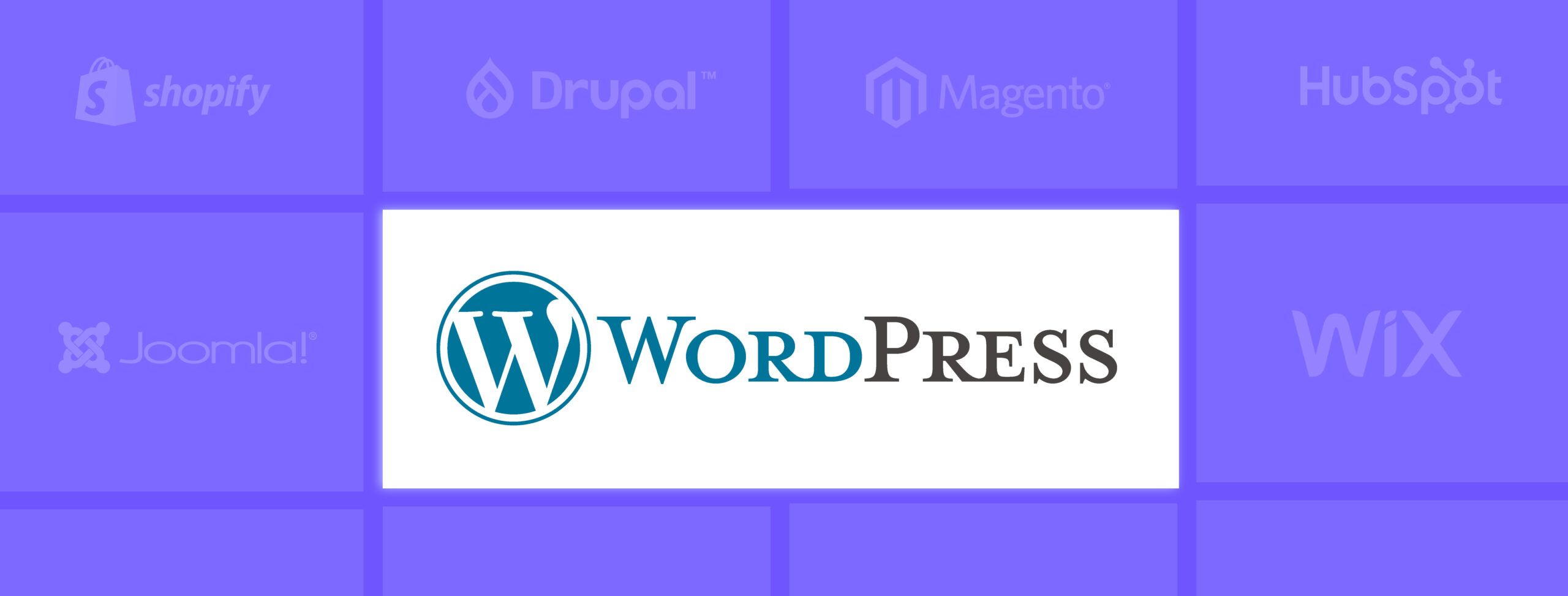
WordPress, as a CMS platform, is considered the best CMS platform by many experts. It’s the world’s most widely used CMS software, powering nearly 43.1% of all websites. Popular sites using WordPress include Microsoft.com, Nih.gov, Zoom.us, Archive.org and a lot more.
Hope you know the difference between WordPress.org and WordPress.com. WordPress.org is a free, open-source CMS that’s used for all kinds of websites and online stores. WordPress.com is a blog hosting platform with fewer customization options.
Positives
- WordPress provides a space to create any website they desire
- No coding knowledge needed to use WordPress
- Block editor allows intuitive page creation
- Users can control the monetization methods of their website
- With plenty of available themes and plugins, both paid and free, users can add extra features
- SEO optimization is easy in WordPress.
- Vast and supportive communities and groups available for users to seek help
- Beginners and advanced developers can equally use WordPress
- Users can easily download all their content in XML format, allowing easy migration anytime
Negatives
- You need to set up hosting and a domain name and look after security and backups
- Too many features can overwhelm beginners
- WordPress is free, but you may have to pay for a domain name and a hosting account
2.Drupal
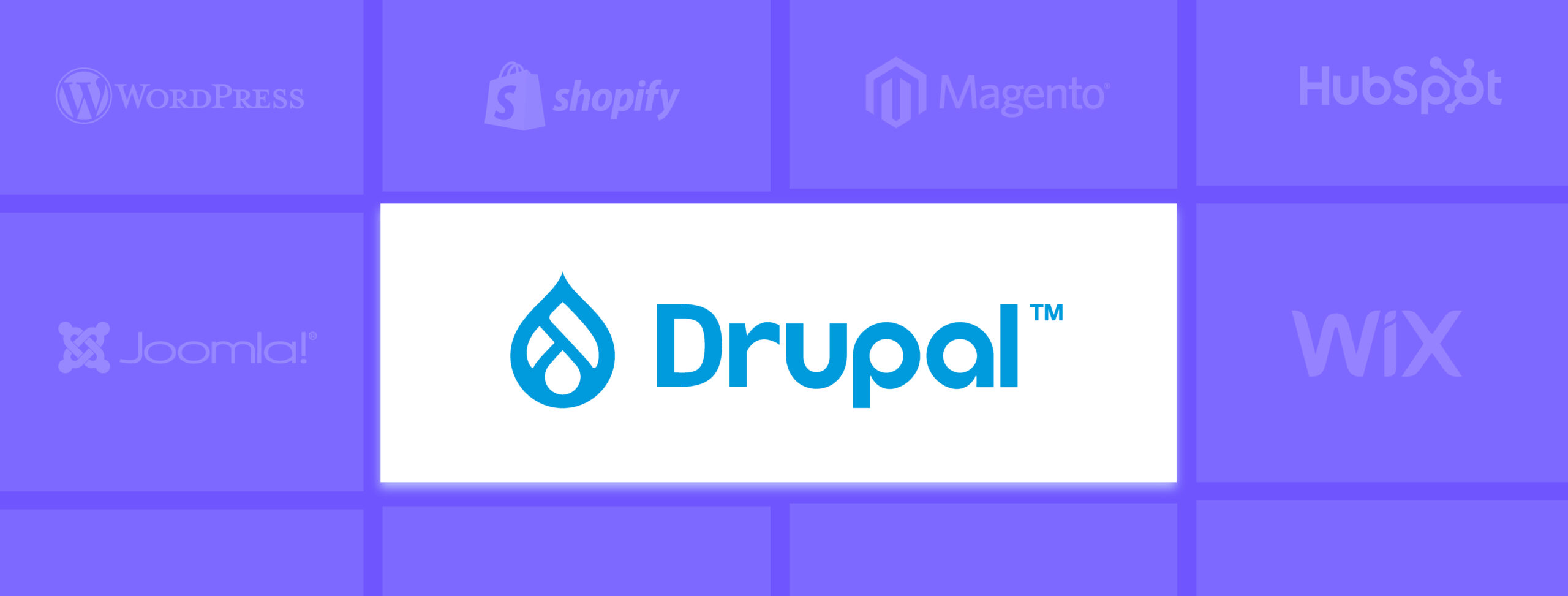
Drupal powers over 1 million development sites. It is a free and open-source web content management system in PHP. W3techs states that Drupal is used by 1.5% of all the websites whose content management systems we know. It includes 10 million websites ranging from personal blogs to corporate, political, and government sites. Drupal is also used for knowledge management and collaboration in businesses.
Drupal is the CMS behind some major websites, including The Economist’s site and a number of university sites. Vimeo.com, Cmu.edu, Acronis.com, etc are just a few sites using Drupal.
Drupal is ideal for highly customizable requirements that handle a lot of data. Drupal requires skilled developers.
Positives
- Drupal offers custom content types that are flexible with many options
- Numerous modules are available which function similar to WordPress plugins
- Strong and supportive community
- User permissions can be allowed
Negatives
- Drupal is not a beginner-friendly CMS platform as WordPress
- Changing the appearance or adding features in Drupal can be difficult
- Most Drupal websites have a custom-made theme developed by a developer
- Creating a custom Drupal theme can be costly.
3.Magento
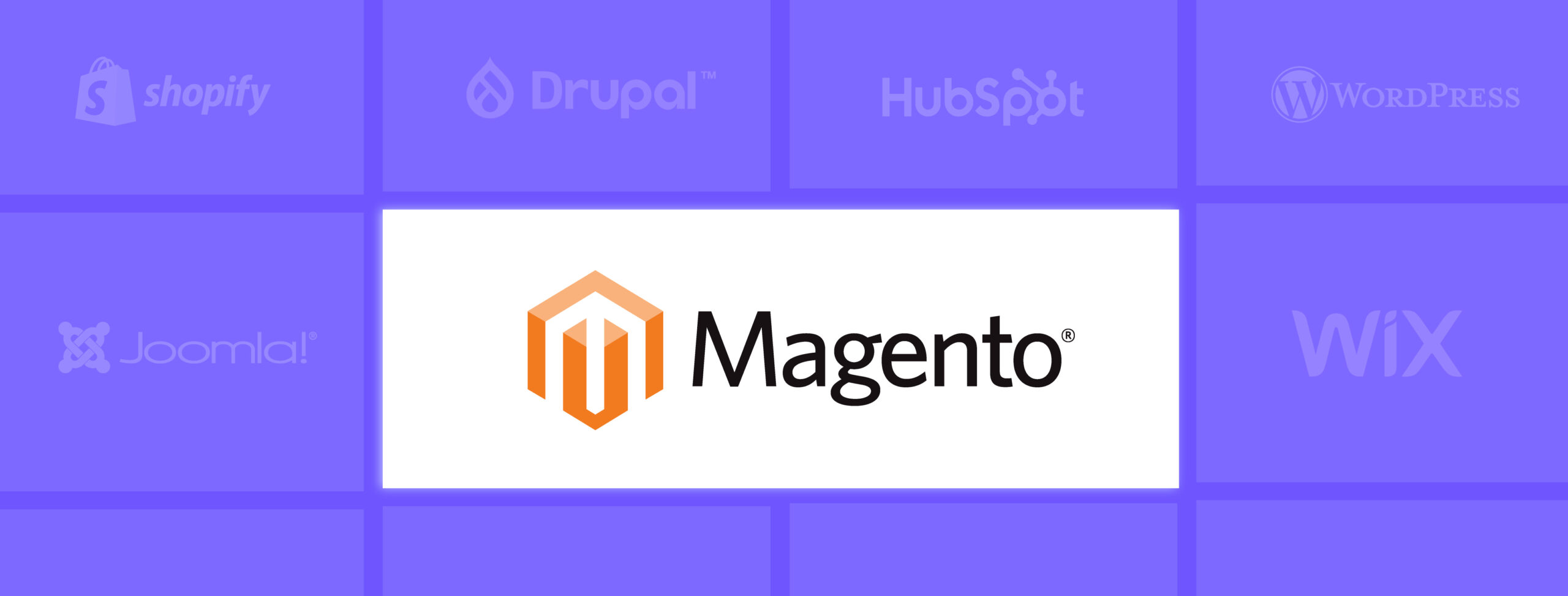
Magento is also an open-source e-commerce platform written in PHP. More than 150k online stores have been created on the platform. According to W3techs reports, Magento is used by 0.7% of all websites worldwide.
Magento can be downloaded and installed on your web hosting account.
Like Magento, WooCommerce is another popular e-commerce platform used by 13.2% of all websites worldwide. This is 9.0% of all websites. WooCommerce functions as a plugin on WordPress rather than an independent CMS platform.
Major brands such as Nike, Ford, and Coca-Cola have used Magento as their e-commerce solution.
Positives
- Customizable, with many third-party extensions available for added functionality
- Manage many products and customers without slowing down your website
- Magento allows you to link with various payment methods, including PayPal, cash on delivery and bank transfer, and built-in options as well
Negatives
- Magento may be heavy for beginners
- Development is comparatively expensive
- Support for Magento Open Source can be limited when relying on online forums for help
4.Joomla
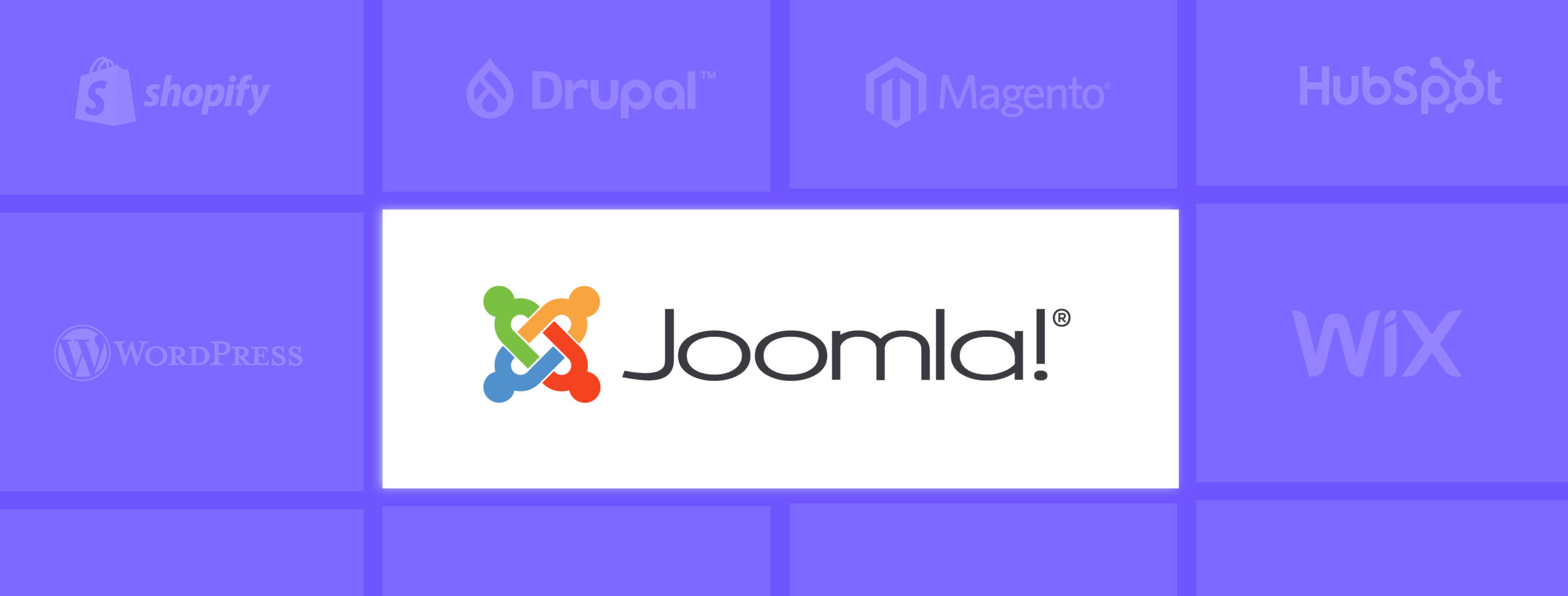
Joomla is another popular, free, open-source CMS platform that comes with many templates and extensions. According to W3techs reports, Joomla version 3 is used by 2.1% of all the websites worldwide. Joomla is packed with features, and many web hosts offer a single-click installation.
Positives
- Easy to edit and update content
- Joomla is a flexible platform with many options
- Great for building complex or bespoke websites
- Open-source platform with a supportive community available
- Offers a few extensions for eCommerce stores
Negatives
- Joomla can be complex and may require a developer’s help
- Joomla has a limited range of additional extensions compared to CMS options like WordPress.
- Compatibility issues may come if you have more extensions and modules installed.
5.Wix
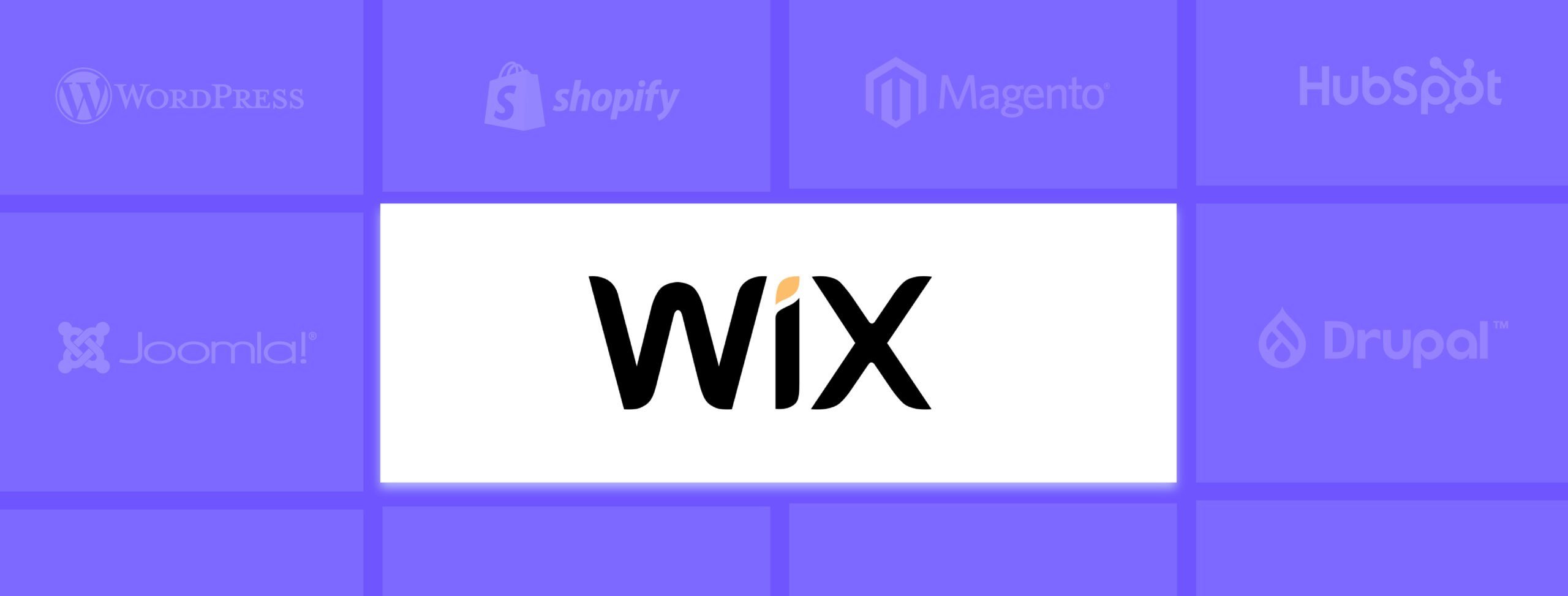
Wix is a popular cloud CMS platform. It is a beginner-friendly cloud platform and it might be worth considering in that category.
Positives
- Drag-and-drop interface that makes it easy to build pages according to your choices
- You can edit any part of your page as you want
- There are multiple pre-made templates available in Wix that are fully responsive
- You can enhance your site’s functionality by merging various apps from the Wix App Market.
Negatives
- Wix doesn’t support operating an eCommerce store unless you upgrade to a paid plan
- Payments only through PayPal or Authorize.net
- Wix doesn’t allow easy data export; manually copying pages is required.
- A free plan in wix means a domain name with wix and revenue for Wix, not for you.
6.Hubspot CMS

HubSpot CMS Hub is a complete content management system that caters to the needs of marketers and business owners. It is uniquely developed on top of HubSpot’s CRM platform, which includes a wide range of marketing automation, sales, service, and operations tools. As a result, CMS Hub is an excellent solution for small and large businesses looking for a complete system to manage their website.
Positive
- Easy to use for beginners
- Drag-and-drop editor
- Built-in SEO tools
- Contact attribution make web development and optimization easier
- Smart content feature enables the personalization of website pages for each customer
- Developers can make changes and customize assets faster with serverless functions, flexible theme options, and command line tools
- CMS Hub has robust security features such as a global CDN, Web Application Firewall, and a dedicated security team to protect site from threats.
- HubSpot CMS seamlessly integrates with their email marketing tool and sales CRM, streamlining operational workflows.
Negatives
- There is a free version, but it demands you to have HubSpot branding on your site.
- HubSpot CMS may not be ideal for eCommerce websites, but it can easily integrate with WordPress and WooCommerce.
7.Shopify
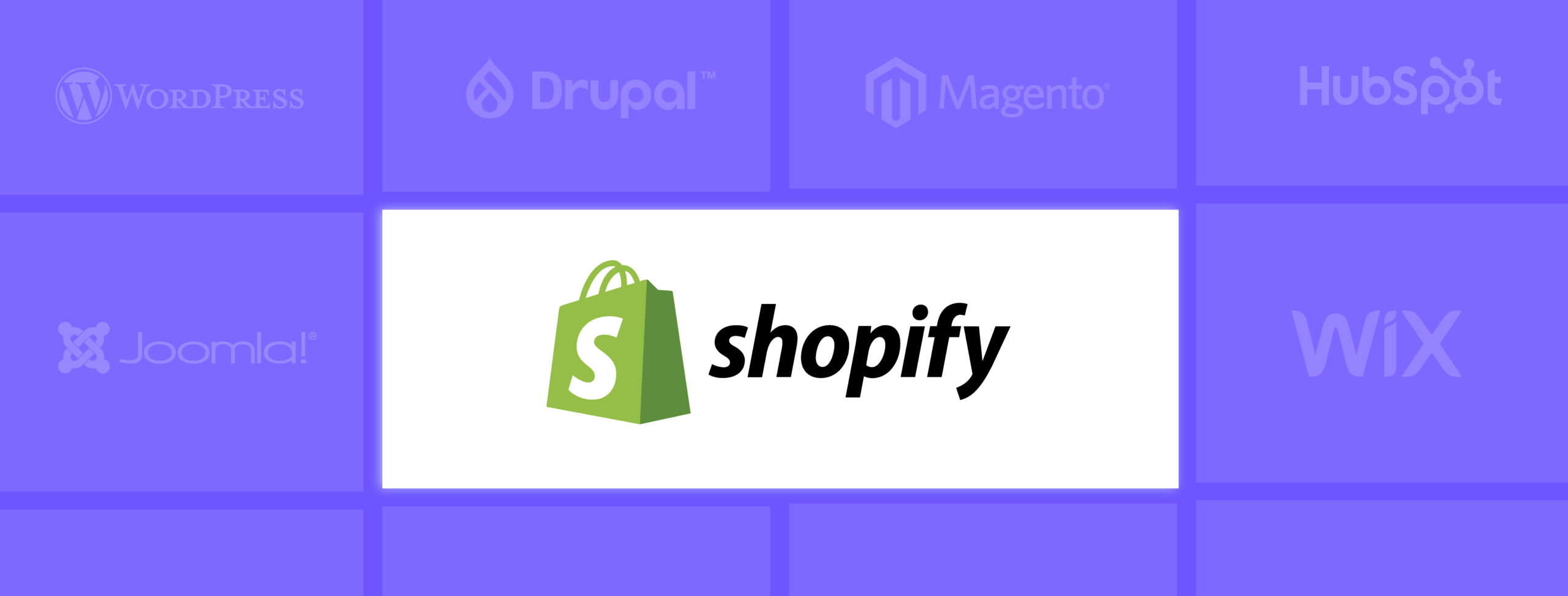
Shopify is another hosted CMS platform which has everything in it. You won’t have to worry about purchasing hosting, installing any software, or managing updates and backups. It has an intuitive drag-and-drop interface and supports in-store sales, which is great if you have a hybrid business with an online and offline presence. You can easily sign up for a Shopify account, choose a design template, and start adding your products right away.
Positives
- Shopify offers an integrated payment solution called Shopify Payments for accepting credit and debit cards
- PayPal is integrated by default
- You can add Shopify apps to add more features
- Shopify provides all the necessary benefits and tools for scaling your business without requiring any upgrades
- 24/7 support through channels like live chat, email, phone, and Twitter
- Resources such as guides, tutorials, and forums are available
Negatives
- Your costs can be quite high, especially if you want to add many third-party apps to your store
- Adding functionality may not be possible
On a final note
Creating a website for your business can be a daunting task, especially if you have no prior knowledge of programming languages. However, with the right tools and resources, the process can be made easier. A CMS platform can help you achieve digital transformation effortlessly, allowing you to focus on other important aspects of your business. So, before outsourcing your website creation, consider using a CMS platform.



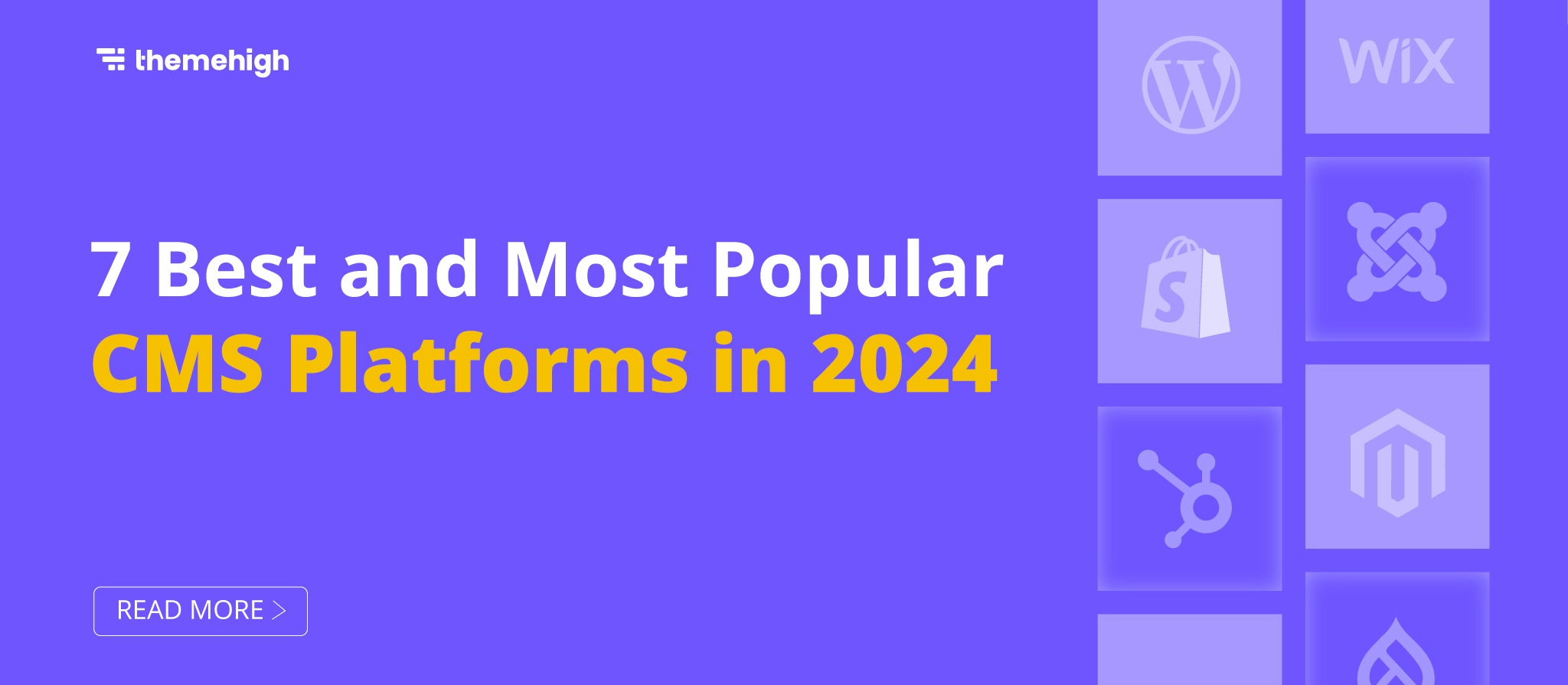

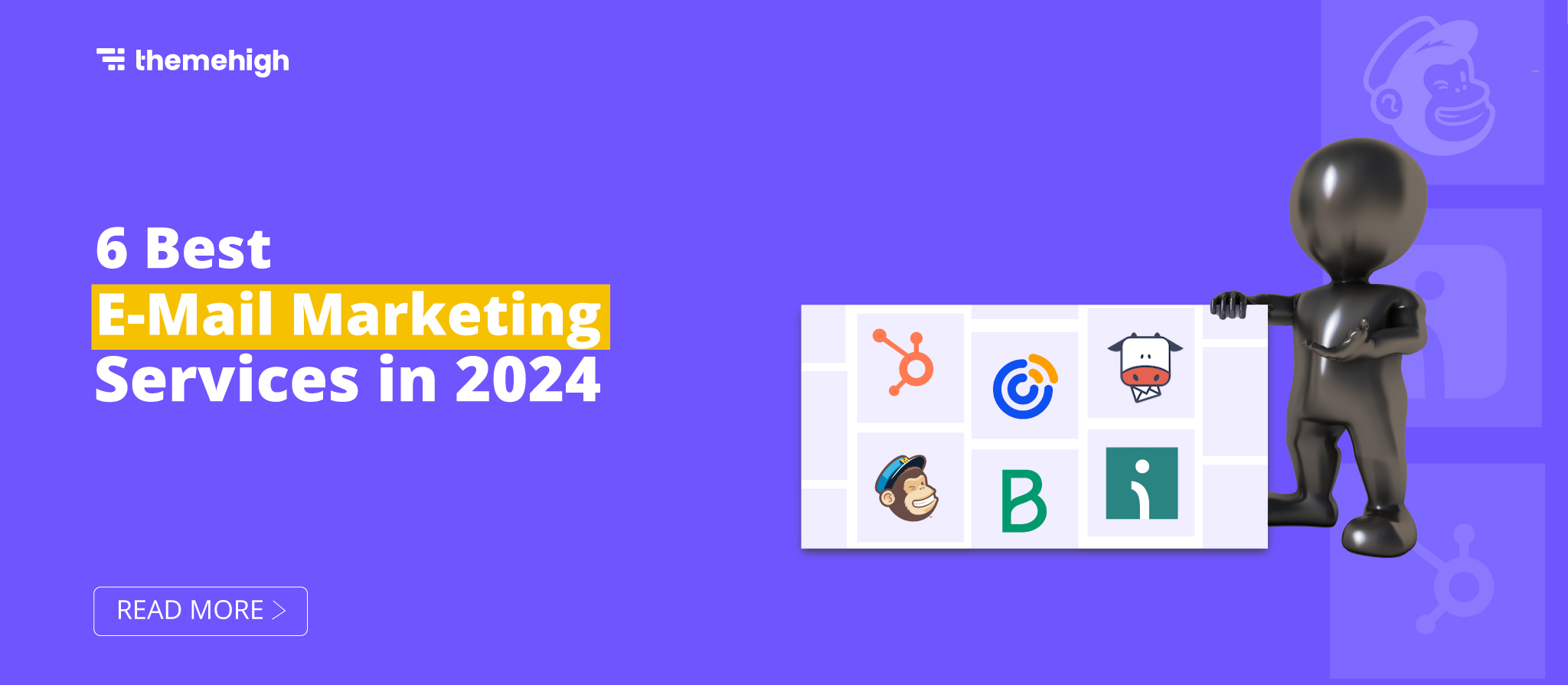




 THANK YOU!
THANK YOU!